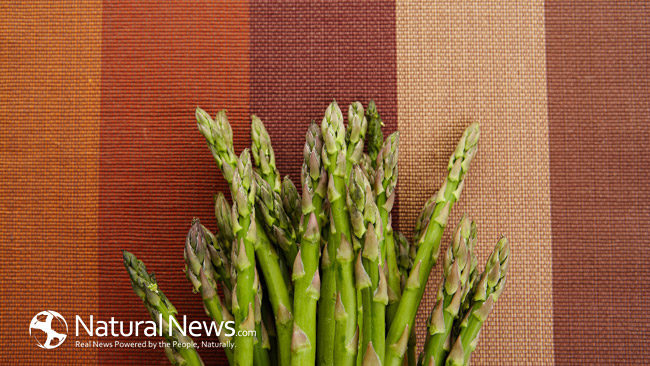Organic foods can positively affect weight, growth, fertility and even immune function. They keep pesticides out of your diet, while it can also be hard to keep within your budget, that is to say, not everyone can afford to eat a 100% organic diet.
Read on to find out which foods are least likely to be contaminated with pesticide residues, and are therefore safest to purchase as non-organic, if needed.
Asparagus
According to EWG analyses, asparagus is one of the vegetables that is least likely to contain pesticide residue.
This spring vegetable is a nutrient-packed source of vitamins, minerals and essential proteins. It is rich in vitamin A, B1, B2, B3, B5, B-6, folate, C, E and K. Asparagus is also packed with antioxidants, ranking among the top fruits and vegetables for its ability to neutralize cell-damaging free radicals.
Avocado
Avocado is a safe fruit to buy non-organic because of its thick outer skin, which prevents pesticides from touching the edible fruit.
Avocado contains in excess of 25 essential nutrients, including vitamin A, B, C, E, & K, copper, iron, phosporus, magnesium, and potassium. It has tons of benefits for overall health: Maintains a healthy heart, controls blood pressure, lowers cholesterol levels, promotes eyes health, protects against cancer and it’s also a super food for healthy skin because of its ability to nourish the skin and make your skin glow.
Cantaloupe
Also, because of its tough skin, pesticide residue cannot touch the edible fruit inside of cantaloupe.
This is a good source of fiber, folate, B vitamins, vitamin C and K, and betacarotene, an antioxidant that helps keep eyes, skin and hair healthy.
Cauliflower
With very low or no discernible pesticide residue, conventionally-grown cauliflower is safe to buy.
Cauliflower is high in dietary fiber, folate, potassium and vitamin C. It also contains glucosinolates, sulfur-containing compounds that help the body detoxify.
Carrots
Conventionally-grown carrots have pesticide residue on their surface, so it is easily removed when you peel them.
Carrots have the ability to increase the health of your skin, improve eyesight, boost the immune system, improve digestion, increase cardiovascular health, detoxify the body, and boost oral health in a variety of ways.
Eggplant
Many of the pesticides used to grow commercial eggplant do not remain on the skin, so it is generally a safe choice.
Eggplant contains certain essential nutrients and it’s low in calories, with only 35 calories per cup. It’s also with heart-healthy benefits.
Kiwi
Pesticides are rarely used on kiwis, so you don’t need to buy them organic.
Higher in vitamin C per ounce than most other fruits, eating kiwis may promote healthy skin, reduce blood pressure and help prevent heart disease and stroke.
Mushroom
Mushrooms have very little pesticide residue, so it is fine to purchase the conventionally-grown variety.
Packed with fiber, mushrooms are also rich in B vitamins ,selenium, potassium, copper, iron and phosphorus. And mushrooms are the only plant source of vitamin D, which is essential for healthy bones and can help prevent osteoporosis.
More Foods You Don’t Need to Buy Organic
And 11 Foods that are Worth Buying Organic
Additional resources: organicfacts.net, ehealthzine.com





